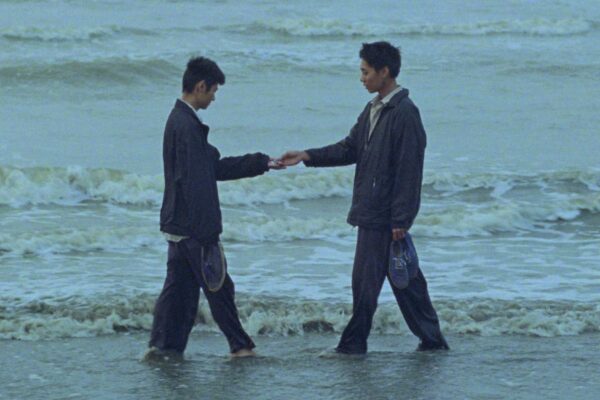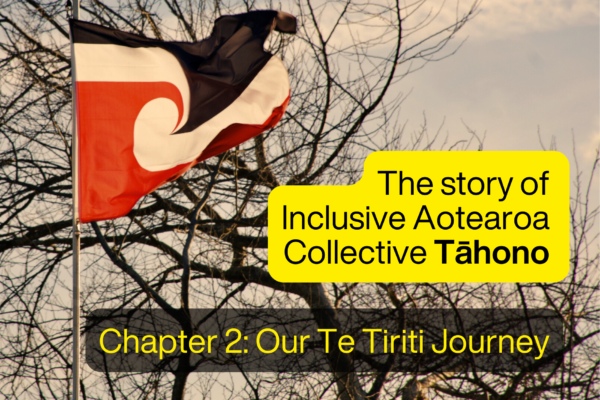The Story of Inclusive Aotearoa Collective Tāhono: The Beginning
Hope out of grief
In the wake of the devastating terrorist attacks in Christchurch in 2019, the Leadership NZ Trust hosted a healing call. Anjum Rahman attended this call, and it was here that Inclusive Aotearoa Collective Tāhono’s story began.
In the call, Anjum raised the 2017 request to senior public servants for a national strategy on diversity and inclusion and how this had not been actioned before the attacks. Nicola Brehaut and Jade Tang-Taylor of Foundation North were on the call and listened to what Anjum had to say. A connection was formed. In a subsequent phone conversation, Nicola suggested that the strategy be developed and implemented in the community rather than through government.
From this point, Jade and Nicola supported Anjum in developing the proposal for Inclusive Aotearoa Collective Tāhono (Tāhono). Jade was the Ethnic Diversity Strategy Activator for Foundation North, and this was a significant project that she supported as one of her activations. Together, they introduced Anjum to the Constellation Model, a community-impact governance system we are still based on today.
Also, at this time, Anjum was approached by the CE of Trust Waikato (Dennis Turton) as the only Muslim trustee of all the Community Trusts across the country. On behalf of all the Trusts, he asked what they could do to respond to the attacks. He also conveyed a message from Sue McCabe of Philanthropy NZ, who wanted Anjum to be a keynote speaker at their conference in May 2019.
Emergence
With Dennis’ support, Anjum presented the Tāhono proposal at a meeting of the CEOs and chairs of the Community Trusts on 15 May 2019. Sue McCabe organised a media interview so Anjum could be featured on the front page of the Dominion Post two days later, on the morning of her keynote speech.
After being featured in the Dominion Post, Anjum was interviewed by Wallace Chapman of RadioNZ during the afternoon show “The Panel”. This publicity and the keynote address at the PNZ speech resulted in people showing considerable interest in the new project.
The difficulty was that the project was still only a proposal, and Anjum was under strain dealing with the aftermath of the Christchurch mosque attacks. There were still numerous media interviews, meetings with government officials, and a royal commission of inquiry being set up.
With bridging funding from Foundation North, Anjum was able to dedicate part of her time to the project from June 2019. Trust Waikato, recognising the project’s potential, provided invaluable support in writing the funding application and budget. By September 2019, the initial funding had been secured, additional staff had been hired, and the project was well on its way.
As you can and will continue to see, the generosity and guidance of helping hands are invaluable. Anna McMartin’s writing assistance, Maureen Marra’s helpful feedback, and Diversity Works’ volunteered graphic design expertise all came together in constructing the initial proposal. The green used in the original design has remained today, symbolising harmony and the project’s commitment to inclusion.
The first public Zoom call for Tāhono was set up, which around 20 people attended. The result was a connection to a fantastic network of people who have supported the organisation. Francis Collins and the team at CaDDANZ (Capturing the Diversity Dividend Aotearoa New Zealand) funded and prepared a literature review that looked at the work done in six categories: youth, older persons, ethnic minority communities, Rainbow communities, women and tangata whenua.
Developing the vision and mission
With the project underway, we wanted to expand the reach of Tāhono’s networks and get input into our strategy. Anjum connected with Tracey Bridges and Kate Smith, who both offered to create a communications plan for Tāhono. We were grateful for the high-level experience on offer; however, it soon became apparent that any such plan required some guiding statements about the vision and mission of this project.
Kate flew to Tāmaki Makaurau to run a session with Anjum and Sandra James (who was on a short-term contract to develop the community engagement plan for 2020). Nicola and Jade from Foundation North and Mark Servian of Momentum Waikato also attended. They met at the Foundation North offices and had a hefty kōrero, focused on how we would define our project and what we hoped to achieve for Aotearoa New Zealand.
There was agreement on the concept of belonging—it focused on connection to place and people, the feeling of being valued and a part of something. Discussions included how organisations and communities fit into the ecosystem, empowerment and what this meant, and the need to ensure that we not only sought belonging for ourselves but were willing to create belonging for others.
This hui established the foundational goals for Inclusive Aotearoa Collective Tāhono:
- Build strong engagement and participation with communities;
- Develop a strong and sound strategy;
- Develop and support constellations across Aotearoa.
What sort of entity?
In establishing the project, there was the choice of what form to take. Tāhono chose not to form itself as an organisation for several reasons:
- Tāhono was interested in the constellation model, which is based on a secretariat sitting in a host organisation, which is then the backbone and administrative hub for the constellations.
- Nicola Brehaut from Foundation North believed there was no need to start a new organisation, and it was better to find an organisation that would host the project.
- Further complications with Foundation North’s rules meant they would not fund an organisation less than twelve months old.
Looking for a Host Organisation
The first task was to list potential host organisations. This was done through a thorough review of organisations with similar values, a broad human rights base, and the capacity to host the project. The host would need to demonstrate their ability to receive funding, make payments, provide financial statements, and submit GST returns.
While organisations can benefit from becoming hosts, the host organisation’s board must take on all the risks associated with the project fulfilling the conditions of any grants received and the risks associated with employing staff, which is a big consideration for any NGO to factor in.
ActionStation and Amnesty International Aotearoa New Zealand were the first two organisations that were approached. While there wasn’t much progress with Amnesty, the then CE of ActionStation (Te Raukura O’Connell Rapira) was supportive. Several online meetings took place, which resulted in a formal letter to the Board of ActionStation.
Unfortunately, the final hurdle couldn’t be passed and ActionStation was not able to become the host. ActionStation’s funding policies were not fully aligned and Tāhono could not guarantee that funding would never be sought from some specific funding organisations. In fact, Todd Foundation became a major donor later in the year. Moreover, the risks were considered too high, and it would take a lot longer than the time available to build the relationships of trust that would enable the hosting to proceed.
Te Raukura had also connected Anjum to Alanna Irving from the Open Collective, who were looking to set up in Aotearoa, New Zealand and act as a host for community-based projects. While this was ideal, they would not be set up in time for Tāhono to receive funding.
Finding a place to rest
Finally, as time was running short and funding proposals were ready to be submitted, Anjum approached the board of Shama, Ethnic Women’s Trust. She was already on the board and a founding member of the organisation first registered in 2002. She had trusted relationships in the organisation and requested the board act as a temporary host so that Tāhono could access funding.
The board agreed, and finally, the funding application could proceed. This was a massive help to the project’s development. Over the coming months, Anjum continued to reach out to organisations looking for a more permanent host. A conversation with Sina Wendt-Moore, the Leadership NZ Trust CE was not successful as the organisation was in transition.
After some months, it became clear that finding another host organisation would be difficult. Shama’s board considered the situation and agreed to become the permanent host of Inclusive Aotearoa Collective Tāhono.
Shama Ethnic Women’s Trust has been a huge enabler of our work. You will hear a bit more about them in future instalments of The Story of Tāhono, and we look forward to sharing the next stage of our journey in our next post: Tāhono’s journey with Te Tiriti o Waitangi.




